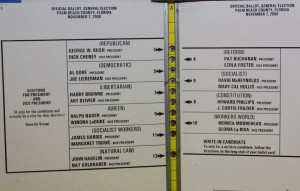Outlawing Amnesty?
Lisa Laplante, in response to last month’s “question of the month,” priorities for the next president, blogged about the need provide accountability for torture. I noticed that in her comments on a recent post on Opinio Juris, she wrote that “[t]he issue of amnesty could become one of the most contentious” in the debate about Bush Adminstration accountability for torture and other human rights violations. She also linked to her timely article, “Outlawing Amnesty: The Return of Criminal Justice in Transitional Justice Schemes,” which
discusses the Barrios Altos case, a seminal decision issued by the Inter-American Court of Human Rights in 2001, that declared the amnesty laws promulgated in 1995 by former Peruvian president Alberto Fujimori to be contrary to international law. Recent scholarship has ignored this decision, or otherwise interpreted it overly narrowly, despite its potentially sweeping impact on the field of transitional justice. Thus, this article responds by offering a more in-depth understanding of the Barrios Altos decision in order to inform the ongoing academic debates on the evolving doctrine on amnesty in transitional justice schemes. It also shares the particular case study of Peru to show how international law directly impacts national transitional justice experiences. This article suggests that the truth v. justice dilemma may no longer exist: instead, criminal justice must be done.
The article is now on my reading list. (The shorter one, the one with things I will probably actually get around to reading.)


